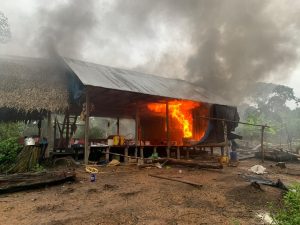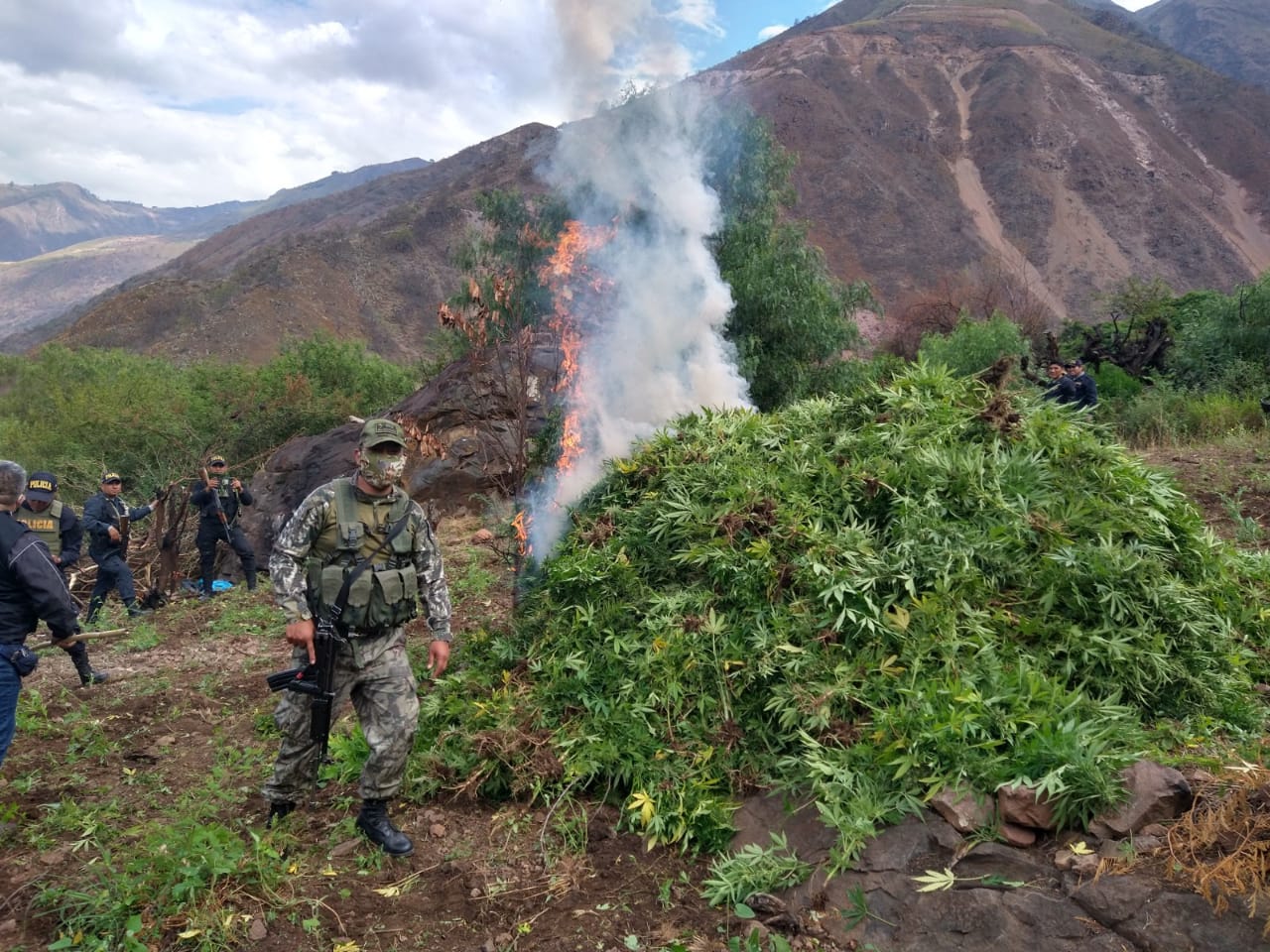In late October, the Peruvian Armed Forces, in coordination with the National Police, destroyed thousands of marijuana plants in operations carried out in the Anco district, Ayacucho region. At that location, service members also destroyed clandestine drug labs, the Peruvian Armed Forces Joint Command (CCFFAA, in Spanish) reported.
“Five labs used for drying and storing drugs, as well as 255,600 marijuana plants, were discovered following a joint operation between the Eastern Operational Command [COE, in Spanish] and the National Police, on October 25 in Amaru Pampa village,” the CCFFAA said in a statement.

Agents seized a total of eight plots, in coordination with the Prosecutor’s Office Specializing in the Crime of Illicit Drug Trafficking, which ordered the incineration of the crops and labs that were found.
“This new effort by the law enforcement forces follows the intervention [conducted] on Thursday, October 22, in this same area, where authorities managed to destroy another 15,000 marijuana plants bound for illicit drug trafficking,” the CCFFAA reported.
The CCFFAA specified that this type of plantations is new in the area, where illicit cocaine trafficking prevails, and announced that they will put greater emphasis on control so as to prevent this type of crops.
From October 30 to November 2, patrols of the Amazon Operational Command (COAM, in Spanish) carried out a territorial control operation as part of the Border Surveillance System and destroyed six illegal laboratories in the Mariscal Ramón Castilla province, Loreto department, which borders Colombia.
The labs were rustic wooden houses, where service members found coca crops covering about 60 hectares, in addition to other materials used for drug production, such as a boat engine, a coca leaf mincer, a motor pump, a high-pressure pump, and two electric scales.
After complying with legal protocols for the sampling and identification of chemicals, authorities proceeded to destroy and incinerate the narco-labs.
“The Armed Forces continue to make efforts to neutralize illegal activities, together with control actions related to the COVID-19 pandemic,” the CCFFAA said.









